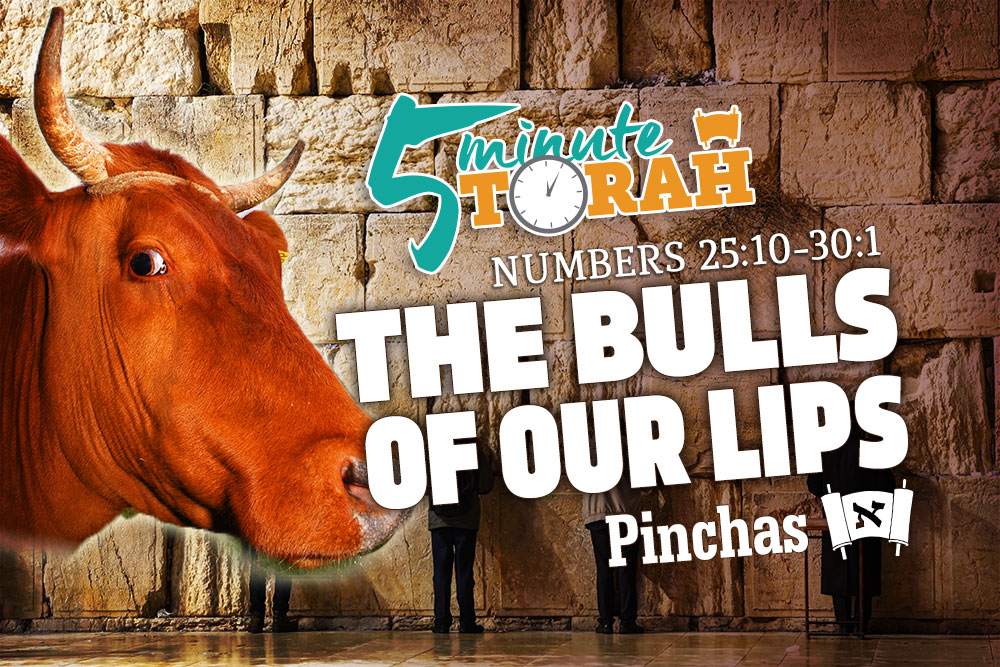The Bulls of Our Lips
Series:

Parashat Pinchas (Numbers 25:10-30:1)
This week's portion covers a variety of topics: the reward of Pinchas, a new census of the Israelites, a case of inheritance in regard to the daughters of Zelophehad, the succession of Joshua, and then the next two chapters is a series of laws regulating the types of offerings that were to be brought to the Holy Temple for various occasions. This last section is what I would like to draw our attention to.
It begins by describing the tamid (continual) offerings-two lambs every morning and late afternoon-that were offered up as whole burnt offerings in the Holy Temple every single day. God considered these daily offerings very special. In these passages He let's us know that He desires them at specific times of the day, instructing the Children of Israel about them saying, "you shall be careful to offer to me at its appointed time" (28:2). He said they are "my offering, my food for my food offerings, my pleasing aroma." He considered them personal gifts from the Children of Israel that He received twice daily, three hundred and sixty-five days a year.
Today, however, the Holy Temple does not stand in Jerusalem. Only its ruins remain. These offerings that are dear to the LORD can no longer be offered. So what can we do to ensure we are bringing to God what He has asked each day? With the destruction of the first Temple during the Babylon exile, the Jewish people had this same dilemma. How were they supposed to continue giving to God what He required without a Temple? Fortunately, they came up with a solution. The sages looked into the Scriptures and realized that God had already provided them an answer. Nearly two hundred years before, the prophet Hosea had written these words:
Take with you words, and turn to the LORD; say unto Him, "Take away all iniquity and receive us graciously, so will we offer the calves of our lips." (Hosea 14:2)
In other words, in the place where we would normally offer up bulls as whole burnt offerings, God would accept the offerings of our lips as an equivalent substitution. And if God accepted our prayers in place of whole burnt offerings, then prayer would also be the acceptable substitution for the daily offerings until the time when the Holy Temple would be restored. Prayer would now take on as much importance as these daily sacrifices that could not be offered. Therefore, just as the lambs were offered morning and evening each day, our prayers are offered at the time that these lambs would have been slaughtered as a continuous offering before the LORD.
As we can see, our daily prayers are intricately connected with the daily sacrificial services that took place in the Holy Temple, and a crucially important part of every day. Therefore, every day we pray specific prayers at these specific times. Joining together with the community of Israel in one voice during these favorable times should be the bare minimum of our divine "service of the heart." Together, we can be participants to ensure that God is receiving the very thing He asked of us. These daily prayers connect us back to ancient past, empower our present life, and help us to anticipate an epic future event when the Kingdom is restored to Israel and Messiah Yeshua sits upon his throne, reigning from Jerusalem. Messianic Jewish pioneer Paul Philip Levertoff said, "If only all of Israel could pray correctly, then the Messiah would already be here, revealed in his glory."
May we be Kingdom participants in this important daily endeavor, and may we merit to see the return of our King soon and in our day!








